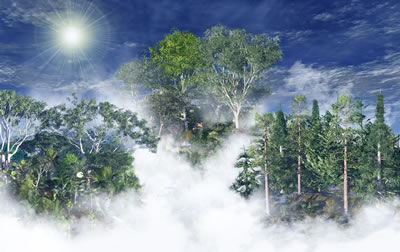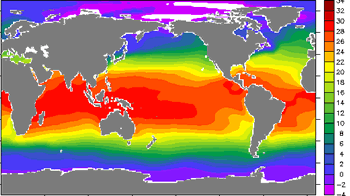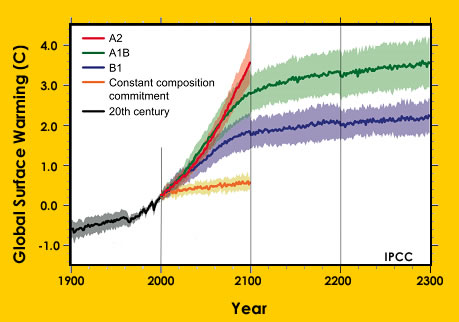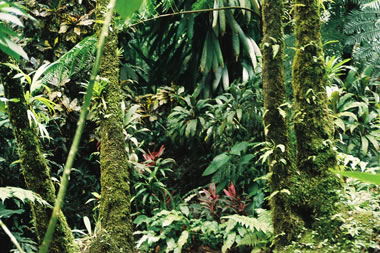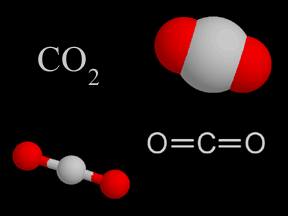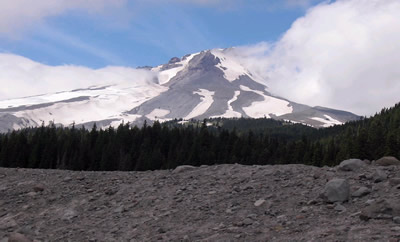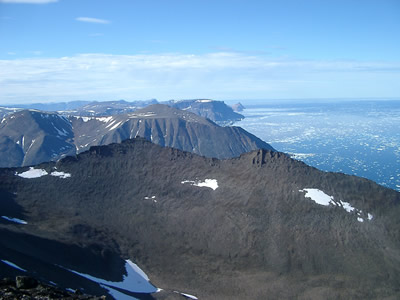Click on image for full size
Image Courtesy of Nicolle Rager Fuller, National Science Foundation
If a Tree Falls in the Forest, and No One Is Around to Hear It, Does Climate Change?
News story originally written on June 12, 2008
Forests cover almost a third of the land surface on Earth. A new report is out about forests and how they impact global climate. Scientists know that forests play a role in both lessening and adding to global warming, so they are now trying to learn more about how these complex processes happen.
Gordon Bonan, the atmospheric scientist who wrote the report, explained that as people become more aware of climate change, there will be a bigger interest in finding ways to decrease global warming. "Forests have been proposed as a possible solution, so it is imperative that we understand fully how forests influence climate," he added.
Forests have complex relationships with the Sun, the atmosphere, the water cycle and the carbon cycle. Forests are also impacted by human activities. These relationships both add to and subtract from the equations that affect the warming of the planet. For example, in the Amazon, tropical rainforests remove carbon dioxide from the atmosphere. This helps lessen global warming by lowering the levels of greenhouse gases in the atmosphere. These forests also put moisture into the atmosphere, which cools climate and also helps to lessen global warming.
Researchers have realized that it is extremely complicated to calculate the damage that comes from a specific activity, such as cutting down a section of tropical rainforest or burning fossil fuels. Because of this, we need a better understanding of the many influences of forests on climate and how these will change as climate changes. Then we will be able to understand how forests can potentially help lessen global warming.


